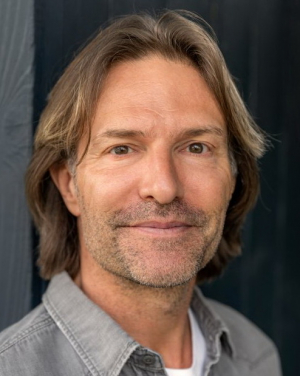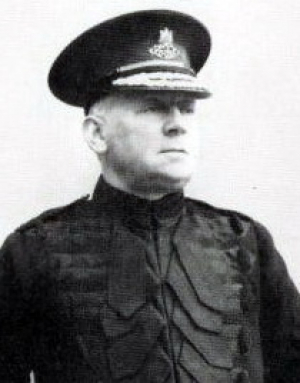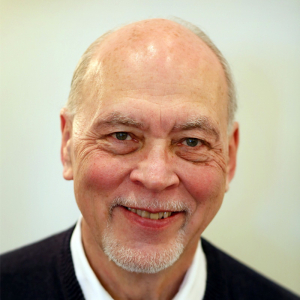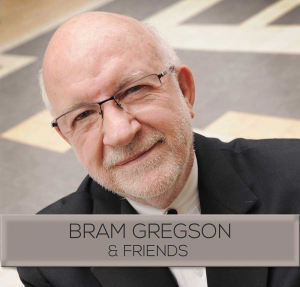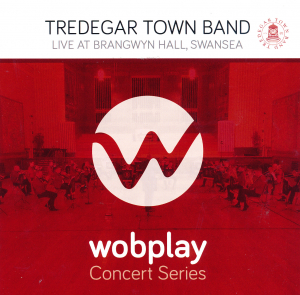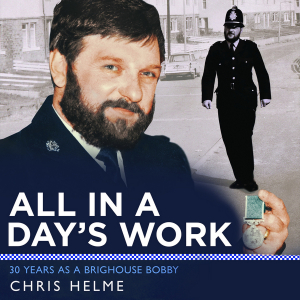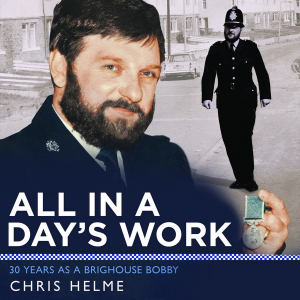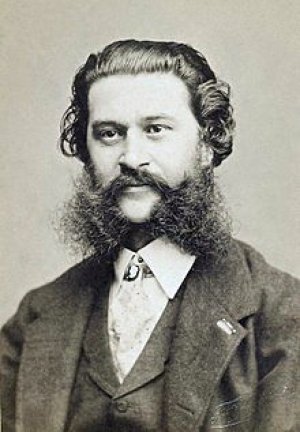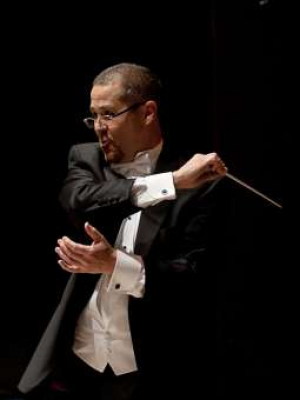
Chris Helme
This week's featured image is Grammy Award-winning composer and conductor, Eric Whitacre, is among today’s most popular musicians. His works are programmed worldwide and his ground-breaking Virtual Choirs have united singers from more than 145 countries. Born in Nevada USA in 1970, Eric is a graduate of the prestigious Juilliard School of Music (New York). He completed his second and final term as Artist in Residence with the Los Angeles Master Chorale in 2020 following five years as Composer in Residence at the University of Cambridge (UK). In 2021, Eric was named a Yamaha Artist. https://ericwhitacre.com/
On this week's show we are featuring one of his compositions 'Sleep' which has been arranged for brass bands by Sandy Smith. This composition has been performed and recorded by bands many times.
Fred Mortimer Conductor
Born 22nd Nov 1880 Died 20th June 1953
Fred was born at Hebden Bridge, Yorkshire. He learnt to play the cornet at home along with his father who at the time was playing the Baritone with the Wyke Temperance band. Fred would listen not only to his father’s band but also the Black Dyke Mills band and paid particular attention to conductor, John Gladney.
Aged 17 Fred started conducting the Hebden Bridge Band leaning the trade from William Rimmer. At the age of 21 Fred became bandmaster of the band.
In 1911 he decided to take a job with the Luton Red Cross Band taking his family with him. In 1923 the Luton Red Cross won the National Championship with the tune “Oliver Cromwell” after which the Mortimer’s named their house.
In 1924 Fred’s son Alex made the move to Sandbach and the Foden Motor Works Band with his father and the rest of the family following on some months later.
After his appointment in December 1924 with Fodens, Fred made his debut with the Band at the Victoria Hall, Hanley on the January 11, 1925, along with the Potteries Choral Society. This was followed three weeks later with a concert at Sandbach Town Hall.
Fred became known as the “Wizard of the Baton” and by his two sons he was affectionately given the name “The Wagabond King”.
Rehearsals with Fodens were overseen by E.R Foden who sat in the background behind a cloud of cigar smoke. In walked Fred Mortimer at the appointed time, having previously arranged with the librarian what they were going to rehearse. He would then walk up to the rostrum and give a peremptory rap on it with his baton and the band would strike up the first note on cue not having spent any time greeting the band members.
If a member of the band played a wrong note the offending player was awarded an ancient putty medal.
The style of the band changed with Fred’s influence moving from the Marching band sound to a more orchestral or symphonic sound which other bands soon started to copy.
The band were playing in a set of concerts at Hyde Park, London as part of the Queen's Coronation celebrations and it was while they were there that the news came through of Fred’s death. Principal Cornet player Teddy (Ted) Gray had to find a replacement conductor for the rest of the days concerts as Harry (Conductor) and his brother (Rex - Bandmaster) returned home to console their mother. The immediate stop gap was Bob Shepley the 3rd Cornet player in the band.
On this week's wqe have a cornet solo played by Harry Mortimer accompanied by the Foden;s Motor Works Band with Fred conducting in 1936.
William Himes (b. 1949) earned his Bachelor and Master of Music degrees from the University of Michigan. For five years he taught instrumental music in the public schools of Flint, Michigan, where he was also lecturer in low brass at the University of Michigan-Flint. Mr. Himes continues to be in demand as conductor, composer, lecturer, clinician, and euphonium soloist, and has appeared throughout the United States, Australia, New Zealand, Sweden, Denmark, Norway, Jamaica, Argentina, Japan, and the United Kingdom.
Since 1977, Mr. Himes has been music director of The Salvation Army’s Central Territory, which encompasses the 11 midwestern states. In this capacity he is also conductor of the Chicago Staff Band, an internationally recognised ensemble which he has led on successful tours of New Zealand, Chile, Canada, Jamaica, Mexico, Singapore, the Philippines, Hong Kong, England, South Korea, and Australia.
We are featuring him with the Chicago Staff Band on this week's show.
Featuring:
Yorkshire Building Soiciety Band MD: Professor David King
Williams Fairey Band MD: Major Peter Parkes
Foden's Richardson Band MD: Garry Cutt
Leyland Vehicles Band MD: Richard Evans
Wardle Acdemy Youth Band MD: Lee Rigg
Doyen Recording: DOYCD404
Johann Strauss II - (25. 10. 1825 – 3. 6. 1899), was an Austrian composer of light music, particularly dance music and operettas. He composed over 500 waltzes, polkas, quadrilles, other types of dance music, several operettas and a ballet. In his lifetime, he was known as 'The Waltz King', and was largely responsible for the popularity of the waltz in Vienna during the 19th century. Some of Johann Strauss's most famous works include 'The Blue Danube', 'Kaiser-Waltz' (Emperor Waltz), 'Tales from the Vienna Woods', 'Voices of Spring', and the 'Tritsch-Tratsch-Polka'. Among his operettas, Die Fledermaus and Der Zigeunerbaron are the best known.
Strauss was the son of Johann Strauss I and his first wife Maria Anna Streim. Two younger brothers, Josef and Eduard Strauss also became composers of light music, although they were never as well-known as their brother.
On this week’s we are featuring his Tritsch-Tratsch-Polka, which used to be popular on park engagement concerts.
Enjoy
Richard L. Saucedo (b. 1957) is an American composer, arranger, conductor and educator.
He was Director of Bands and Performing Arts Department Chairman at Carmel High School, Indiana, USA. The Carmel bands received numerous state and national honours in the areas of concert, jazz, and marching.
Carmel High School Wind Symphony was invited to the Bands of America National Concert Band Festival in 1992 and 1999, and was named the Indiana State Champion concert band in 1999. The Carmel High School Marching Greyhounds, have been consistent National finalists since 1995, crowned 2005 Bands of America Grand National Champion. Also in 2005, the Wind Symphony performed at the prestigious Midwest Clinic in Chicago. The Indiana Bandmasters Association named him Indiana's "Bandmaster of the Year" for 1998-99.
Today he is a freelance arranger, composer and is on the writing staff for the Hal Leonard Corporation.
His 2009 composition American Barndance is on today's show.
Talks Available
All the presentations are timed to last up to an hour except where shown - questions are gladly taken after the presentation. All have been presented to male, female and mixed audiences of varying age groups.
-
A Postcard from the Past
The Sunny Vale Pleasure Gardens, Halifax - Yorkshire’s Alton Towers of the…
-
All in a Days Work
Reminiscences from 30 years in the Police Service – (humorous lecture presentation)…
-
Legends from the world of Brass Bands
(Info-tainment – digital slides & music) – 1 hour presentation.
-
A Week in May
A story based on the Murder of Lord Frederick Cavendish (of the…
- Memories of Christmas Past
-
The Road to Publication
In 1979 I was asked to assist in presenting a series of…
- Holiday Memories from the Past
-
How we used to live
We have all seen and experienced changes in our lives. Bring back…
-
Other Folks Rubbish (Not suited to a Zoom presentation)
With a local history theme… – (thought provoking humorous lecture presentation) –…
- So you want to be a Pirate ? - The life of a Pirate was not all that it seemed
- Superstitions, New Year Resolutions and the Origins of St Valentine's Day
- Brighouse at Work
-
Sorry but I am not able to accept any more face to face talk bookings at the present time ONLY ZOOM TALKS


